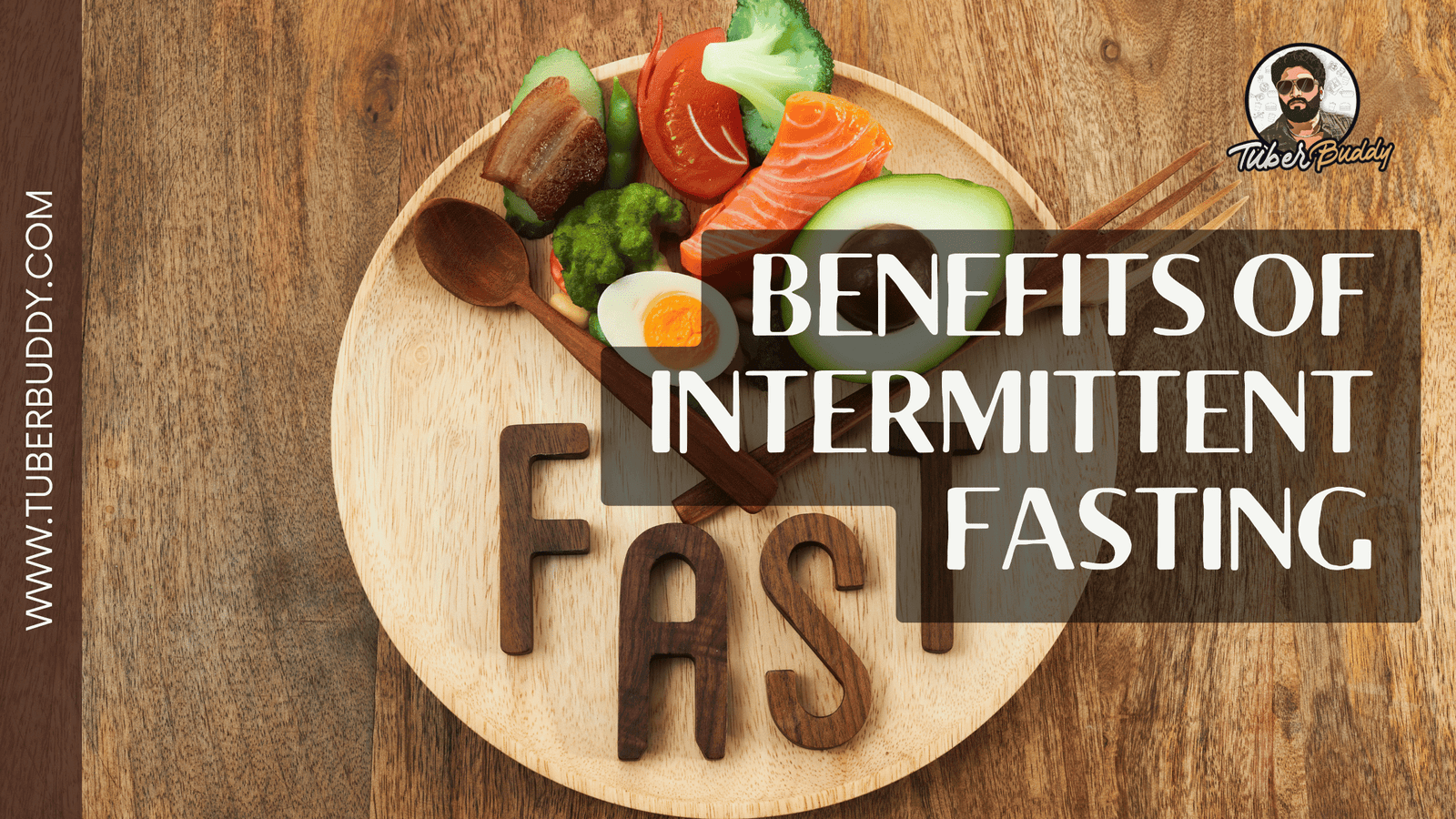
Benefits of Intermittent Fasting for Health and Weight Loss
Intermittent fasting (IF) has gained popularity in recent years as a powerful tool for weight management and overall health improvement. Unlike traditional diets that focus on what you eat, intermittent fasting is all about when you eat. It’s a simple yet effective approach that involves alternating periods of eating and fasting. For beginners, intermittent fasting may seem daunting, but with the right knowledge and mindset, it can be an easy and sustainable way to enhance your well-being. In this blog post, we’ll explore the benefits of intermittent fasting and provide a beginner-friendly guide to help you get started.
What Is Intermittent Fasting?
Intermittent fasting isn’t a diet in the traditional sense. Instead, it’s an eating pattern that cycles between periods of eating and fasting. The most common intermittent fasting methods include:
- 16/8 Method: Fasting for 16 hours and eating within an 8-hour window (e.g., eating between 12:00 PM and 8:00 PM).
- 5:2 Diet: Eating normally for five days a week and reducing calorie intake to about 500-600 calories on the other two days.
- Eat-Stop-Eat: Fasting for 24 hours once or twice a week.
- Alternate-Day Fasting: Alternating between days of normal eating and fasting.
For beginners, the 16/8 method is often recommended as it’s the easiest to incorporate into daily life. By simply skipping breakfast and restricting your eating window, you can start to experience the benefits of intermittent fasting without feeling deprived.

Benefits of Intermittent Fasting
Intermittent fasting offers a range of benefits that go beyond weight loss. Here are some of the key advantages:
1. Weight Loss and Fat Loss
One of the most well-known benefits of intermittent fasting is its effectiveness for weight loss. By reducing the number of hours you eat, you naturally consume fewer calories. Additionally, fasting helps lower insulin levels, allowing your body to burn stored fat more efficiently. This makes intermittent fasting an excellent tool for those looking to lose weight and reduce body fat.
Why It Works: During the fasting period, your body depletes its glycogen stores and begins to burn fat for energy. This process, known as lipolysis, leads to weight loss, especially when combined with a healthy diet.

2. Improved Metabolic Health
Intermittent fasting has been shown to improve several key aspects of metabolic health. It can help lower blood sugar levels, improve insulin sensitivity, and reduce inflammation—all of which are important for preventing chronic diseases like type 2 diabetes and heart disease.
Key Insight: By giving your body regular breaks from food, intermittent fasting allows it to reset and repair, leading to improved metabolic function. This can result in better control over blood sugar levels and a reduced risk of developing metabolic syndrome.
3. Enhanced Mental Clarity and Focus
Many people report improved mental clarity and focus as one of the surprising benefits of intermittent fasting. When you fast, your body increases the production of brain-derived neurotrophic factor (BDNF), a protein that supports brain health and cognitive function.
How It Helps: With stable energy levels and reduced brain fog, intermittent fasting can enhance your ability to concentrate, think clearly, and perform cognitive tasks more efficiently.
4. Increased Longevity
Intermittent fasting has been linked to increased lifespan in several animal studies. While research in humans is still ongoing, the potential for fasting to promote longevity is an exciting prospect. Fasting triggers autophagy, a process where your body cleans out damaged cells and regenerates new ones, which may contribute to a longer, healthier life.
The Science Behind It: Autophagy is your body’s natural way of detoxifying and repairing itself. By regularly fasting, you stimulate this process, which may help slow down the aging process and reduce the risk of age-related diseases.
5. Simplicity and Flexibility
Unlike many diets that require counting calories, measuring portions, or avoiding certain foods, intermittent fasting is simple and flexible. You can choose an eating pattern that fits your lifestyle, making it easier to stick with over the long term.
Why It’s Easy: Intermittent fasting doesn’t require you to change what you eat—just when you eat. This simplicity makes it more sustainable for people with busy schedules or those who struggle with restrictive diets.
Intermittent Fasting for Beginners: Getting Started
If you’re new to intermittent fasting, it’s important to start gradually and listen to your body. Here’s a beginner-friendly guide to help you get started:
1. Choose Your Fasting Method
For beginners, the 16/8 method is the most popular and easiest to follow. Simply skip breakfast and eat your meals within an 8-hour window, such as from 12:00 PM to 8:00 PM. If this seems too difficult, you can start with a 14/10 fasting schedule and gradually increase the fasting period as your body adjusts.
2. Stay Hydrated
During the fasting period, it’s crucial to stay hydrated. Drink plenty of water, herbal teas, or black coffee to keep your energy levels up and avoid dehydration. Hydration also helps curb hunger and supports the body’s natural detoxification processes.
Pro Tip: Start your day with a glass of water to kickstart your metabolism and keep a water bottle with you throughout the day.
3. Eat Nutrient-Dense Foods
When you break your fast, focus on nutrient-dense foods that provide essential vitamins, minerals, and macronutrients. Include plenty of fruits, vegetables, lean proteins, and healthy fats in your meals to nourish your body and keep you feeling satisfied.
Meal Ideas: Start with a balanced meal that includes protein, such as grilled chicken or tofu, paired with whole grains like quinoa or brown rice, and a generous portion of vegetables.
4. Listen to Your Body
It’s important to listen to your body and adjust your fasting schedule as needed. If you feel overly hungry, fatigued, or unwell, consider shortening your fasting window or trying a different method. Intermittent fasting should be a sustainable and enjoyable practice, not a source of stress.
Advice: Pay attention to how your body responds to fasting. It’s normal to feel hungry initially, but as your body adapts, you should start to feel more comfortable with the fasting schedule. This adjustment period is also when you may begin to notice the Benefits of Intermittent Fasting, such as improved energy and better focus, making the practice more manageable over time.
5. Be Consistent
Consistency is key to experiencing the Benefits of Intermittent Fasting. Stick to your chosen fasting schedule for at least a few weeks to give your body time to adjust and start reaping the rewards. Remember that intermittent fasting is a lifestyle, not a quick fix, so patience and persistence are essential for long-term success.
Common Challenges and How to Overcome Them
Hunger Pangs: In the beginning, you may experience hunger pangs during your fasting period. To manage this, stay busy, drink plenty of water, and remind yourself that the discomfort is temporary.
Social Situations: Fasting can be challenging when you’re in social situations that revolve around food. Plan ahead by adjusting your fasting window or choosing healthier options at social gatherings.
Energy Levels: Some people experience a dip in energy levels when they first start fasting. Ensure you’re eating balanced meals and getting enough sleep to support your energy needs.
Conclusion
Intermittent fasting offers a range of benefits, from weight loss and improved metabolic health to enhanced mental clarity and longevity. For beginners, the key to success is starting slowly, staying consistent, and listening to your body. With the right approach, you’ll gradually notice the Benefits of Intermittent Fasting, making it an effective and sustainable way to improve your overall health and well-being.
Remember, intermittent fasting is not a one-size-fits-all approach, and it’s important to find a method that works best for you. Whether you’re looking to lose weight, boost your energy levels, or simply adopt a healthier lifestyle, intermittent fasting could be the key to unlocking a better, healthier you.
For more stories that connect past and present, Follow https://tuberbuddy.com/
